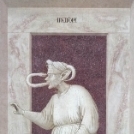-
Register/Login on Totallympics!
Sign up to Totallympics to get full access to our website.
Registration is free and allows you to participate in our community. You will then be able to reply to threads and access all pages.
If you encounter any issues in the registration process, please send us a message in the Contact Us page.
We are excited to see you on Totallympics, the home of Olympic Sports!
[OFF TOPIC] Coronavirus Pandemic
-
Who's Online 44 Members, 0 Anonymous, 1,129 Guests (See full list)
- rafQ
- hckošice
- Vic Liu
- Bulgaria87
- Josh
- clemsonbeav
- Quasit
- Gianlu33
- orangeman
- CanadaWolvesFC
- Grassmarket
- Bailer
- Surlympics
- Faramir
- Matteo92
- Topicmaster1010
- Ludwig37
- Belle
- Federer91
- Sindo
- Monzanator
- Illya
- Styrka
- hoversaBR
- Agger
- sharkinator
- Ashes
- mester
- jorge71971
- Trebron92
- Fly_like_a_don
- Jon
- avlar
- Biathlonfan
- De_Gambassi
- rybak
- MagyarBabu
- Bearas
- Roamingrover86
- FancyFenchel
- Donce
- Wumo
- Quaker2001
- intoronto






Recommended Posts
Create an account or sign in to comment
You need to be a member in order to leave a comment
Create an account
Sign up for a new account in our community. It's easy!
Register a new accountSign in
Already have an account? Sign in here.
Sign In Now